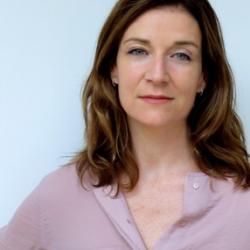Biography
Jessie Fyfe completed her PhD at the Department of Architecture at the University of Cambridge under the supervision of Dr Maximilian Sternberg. Her dissertation, titled 'Unsettled Landscapes: The Narrative and Material Capacities of Landscape in Post-War Croatian Hinterlands’ explored the 'unsettled' affective qualities discharged through these landscapes and their relationships or presumed relationships with traumatic memory.
Jessie Fyfe holds an MSc in political theory from the London School of Economics, is a trained architect and is an Associate Fellow of the Higher Education Academy. In 2019 she was acknowledged by Cambridge University's Outstanding Student Contribution to Education Awards. She is currently the Director of Studies for Architecture at Emmanuel College and continues to supervise individual third year dissertation students at the Department of Architecture on subjects that range from the picturesque of landfills, the English country house at war and the conception(s) of Eden in botanic gardens.
Jessie has lectured on BA Tripos (ARB/RIBA Part I) courses and has taught the second year undergraduate lecture series Gardens and Landscapes. For the last three years she has also supervised the following BA Tripos courses: Pre-1800 Architectural History and Theory; Post-1800 Architectural History and Theory and Theories in 20th Century Architecture.
While researching her PhD at Cambridge University Jessie co-edited the twenty-sixth issue of ‘Scroope’, The Cambridge Architecture Journal, on the theme of ‘Apologia.’ https://www.arct.cam.ac.uk/Downloads/scroope-26-website-sample.pdf. In the same year she co-convened the University of Cambridge Centre for Urban Conflict Research PhD and early-career workshop ‘Doing Architectural Research: Socio-political Perspectives on Theories, Methodologies and Praxis’ held in the Department of Architecture. https://ucrworkshop.wixsite.com/ucrworkshop2017.
Dissertation Abstract:
Historically, conflicts concerned with ethno-national identity, culture and borders have tended to take place in urban situations. Cities are thus distinct targets for group-based hostilities, and this has been the focus of a growing body of literature. Within the discourses on the legacy of conflict and violence suffered during the 1990’s war in the Former Yugoslav Republic, Mostar, Vukovar, Sarajevo, and other cities have understandably been the focus of much research on the dynamics of conflict and memory within the built environment. This dissertation proposes an expansion beyond this attention to urban, social and cultural memory-scapes, a shift in the frame toward landscape, focussing on the historical violence in Croatia and its legacy for the cultural value of landscapes of conflict, and on memory making within those landscapes.
With architectural targets of destruction, the destruction itself often endows buildings with historical significance, but violence that takes place in the landscape affects cultural practice differently. Indeed, what is communicated in the destruction within and of a landscape is bound to its capability to efface, to weather, and deteriorate as well as to renew and regenerate. Landscape is perceived to be linked to the special temporal condition of the cyclical nature of growth and adaptation: it is afforded a perceived primordial status, a characterisation that can be seen as a kind of violence itself as these natural processes can physically conceal, alter, and suppress evidence of conflict and trauma. The manifestations of these perceptions of landscape shape the histories and biographies of place and mark the land as ‘unsettled’ in the ongoing processes of both place and memory making.
The dissertation explores the tensions in the materiality, spatiality, and temporality of landscape that impact the commemoration practices following the historical and more recent conflicts within Croatia. Original empirical research on two memorials in borderland landscapes contributes to contemporary discussions on the cultural spaces of memory in post war Croatia and, by implication, more broadly, by demonstrating that landscape affords particular opportunities and sets particular conditions for local and official memory practices in response to traumatic events. The dissertation argues that the dynamic relations between landscapes and memorials are linked to the politically discursive status of landscapes, their material and affective qualities, and their temporal condition, rendering them significant in themselves for the formation of cultural memories of conflict. Finally, the research advocates for an expanded notion of landscape to acknowledge the distinctive, complex, and integral role it can be understood to play in memorial dynamics.
Research Presentations, Lectures and Invited Talks:
‘Landscape and Memories of a Minefield,’ University of Cambridge Heritage Fair, Cambridge Heritage Research Centre, Department of Archaeology, University of Cambridge. (Online December 2020).
'Natural Monuments and Landscape Memorials,' From Building to Continent: How Architecture Makes Territories, Centre for European Architecture and Kent School of Architecture, University of Kent. (June 2018).
'Topographia and Topothesia: Memory and Testimony in a Croatian Landscape', Centre for Research in the Arts, Social Sciences and Humanities (CRASSH), Alchemical Landscape Seminar Series. University of Cambridge. (June 2018).
'Landscape and Memory: A Biographic/Topographic Reading of a Clover Field in Croatia,' Memorialization Unmoored: The Virtualization of Material Mediums of Social Memory.' Genocide Studies Program Yale University (March 2018).
'Appropriations of the Landscape: Legacies of Witness Testimony on Physical and Memorial Landscapes in Croatia,' European Architectural History Network (EAHN), Histories in Conflict: Cities, Buildings, Landscapes. Van Leer Jerusalem Institute, Jerusalem (June 2017).
'Appropriation of the Landscape: Spatiality and Materiality of Memory in Croatia,' Urban Conflict Research Centre PhD and Early-Career Workshop ‘Doing Architectural Research: Socio-political Perspectives on Theories, Methodologies and Praxis.’ Department of Architecture, University of Cambridge (June 2017).
'Reading Material and Memorial Landscapes in Witness Testimony,' PhD Symposium, Newnham College, University of Cambridge (May 2017).
‘Legacies of Witness Testimony on Physical and Memorial Landscapes in Croatia,’ Pudding Seminar Series, Newnham College, University of Cambridge (February 2017).
‘Topographia and Topothesia: Spatiality of Memory and the Croatian Archipelago,’ Cambridge University, Department of Architecture, PhD Symposium (June 2016).
'Landscape and Memory: Croatian contexts,’ PhD Presentation, Department of Architecture, University of Cambridge, UK (October 2015).
Research
- The cultural role and meaning of architecture, cities and landscapes
- Spatial practices of memory making
- Cultural, aesthetic, and ecological role of landscape architecture
- Border and hinterland-scapes
Publications
Fyfe, Jessie and Sternberg, Maximilian (2019). Unsettled Landscapes: traumatic memory in a Croatian hinterland. Space and Polity Vol. 23 (3), pp: 1-20.


